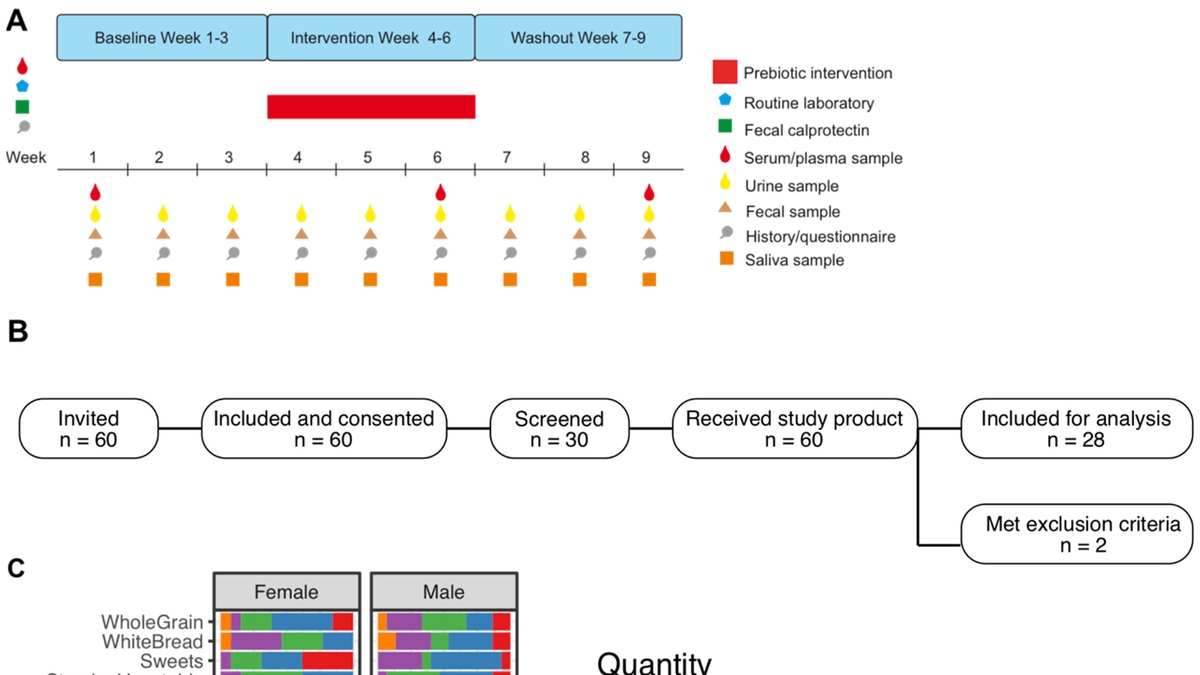
Unraveling the Complexity of Prebiotics
Researchers at the University of Vienna have recently made a significant advancement in our understanding of prebiotics and their role in nutrition and gut health. Their study, published in Nature Communications, delves into the effects of inulin, a commonly used prebiotic, on the human gut microbiome, shedding new light on the complex interplay between our diet and our gut health.
The Role of Inulin in Gut Health
Inulin, a type of dietary fiber, has long been recognized for its prebiotic properties. It is widely used in food products and dietary supplements for its ability to stimulate the growth of beneficial gut bacteria. The new study conducted by the University of Vienna, however, challenges this traditional view. According to the researchers, inulin has a broader and more diverse impact on the gut microbiome than previously assumed. Contrary to the conventional belief that inulin primarily stimulates ‘good bacteria’ like Bifidobacteria, the study reveals that its effects are far more extensive.
Individual Differences in Gut Health
The research also underscores the importance of considering individual differences when developing dietary recommendations and microbiome-based interventions. This is because the composition of our gut microbiome is highly individualized, influenced by factors such as diet, lifestyle, genetics, and even geographical location. Therefore, a one-size-fits-all approach to dietary recommendations may not be effective for everyone.
Prebiotics and the Origins of Life
Interestingly, this study is not the first time the University of Vienna has made noteworthy strides in prebiotic research. In previous studies, researchers from the university have explored the potential role of prebiotic compounds in the origins of life. By analyzing various prebiotic compounds and their interactions in simulated early Earth conditions, they have provided insights into how complex organic molecules could have formed under prebiotic conditions. These molecules, such as amino acids and sugars, are essential building blocks of life.
Prebiotics in Space
Even more fascinating is the idea that prebiotic molecules could have originated in deep space and been delivered to Earth by comets and meteorites. This hypothesis, also proposed by researchers at the University of Vienna, suggests the intriguing possibility that life on Earth may have extraterrestrial origins. The researchers have conducted extensive research on the formation and stability of prebiotic molecules in space, contributing to our understanding of the potential for life to exist on other planets.
Moving Towards Personalized Nutrition
In light of these findings, it’s becoming clear that the role of prebiotics in health and nutrition is more complex than previously thought. This new understanding paves the way for the development of personalized dietary supplements and microbiome-based therapies. By taking into account individual differences in gut microbiome composition, we can develop more effective dietary strategies and treatments for a range of health conditions.
Conclusion
These ground-breaking studies by the University of Vienna are not only advancing our understanding of prebiotics and gut health, but also opening up new avenues for research into the origins of life and the potential for life beyond Earth. It’s an exciting time to be delving into the world of prebiotics, as we continue to unravel their complexity and discover their full potential in health and nutrition.
